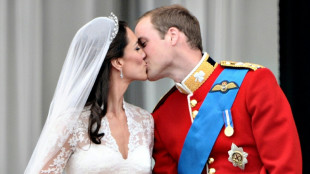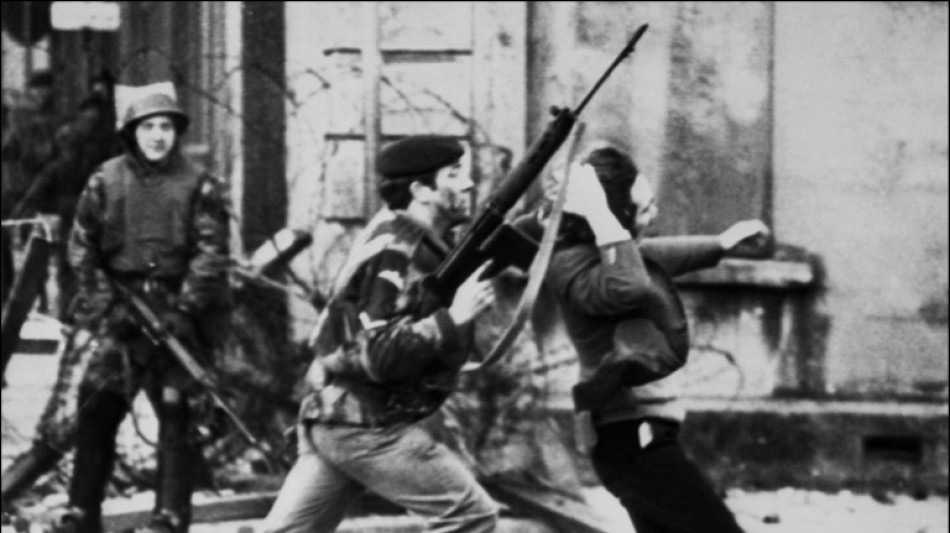
-
 GM profits top estimates, but automaker reviewing outlook due to tariffs
GM profits top estimates, but automaker reviewing outlook due to tariffs
-
Stock markets edge up as Trump softens tariff pain for auto firms

-
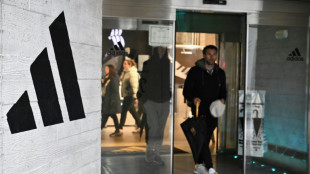 Pricier trainers? Adidas warns on US tariff impact
Pricier trainers? Adidas warns on US tariff impact
-
Spain, Portugal rule out cyberattack for massive blackout
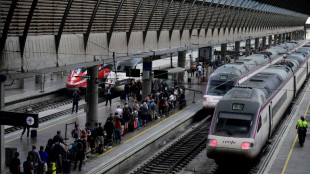
-
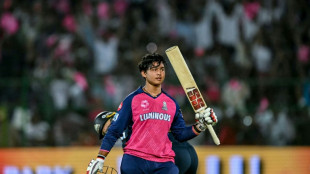 Suryavanshi, 14, dubbed India's next superstar after shattering records
Suryavanshi, 14, dubbed India's next superstar after shattering records
-
Power back in Spain, Portugal after massive blackout
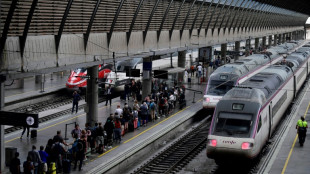
-
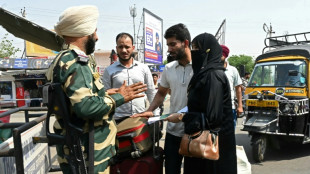 Pakistan says it shot down Indian drone along Kashmir border
Pakistan says it shot down Indian drone along Kashmir border
-
Cardinals run the media gauntlet ahead of conclave
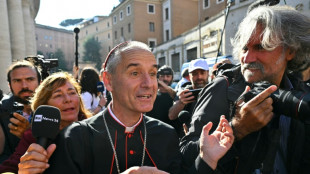
-
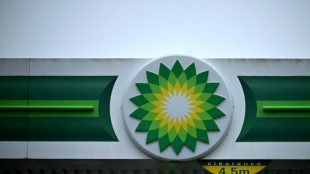 BP profit drops 70% amid pivot back to oil and gas
BP profit drops 70% amid pivot back to oil and gas
-
Iran says fire contained after deadly blast at key port
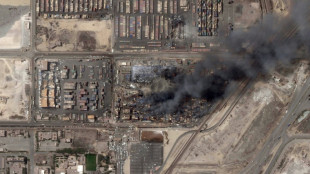
-
 Irish rappers Kneecap deny support for Hamas, Hezbollah
Irish rappers Kneecap deny support for Hamas, Hezbollah
-
Blackout plunges Spain into chaotic night of darkness
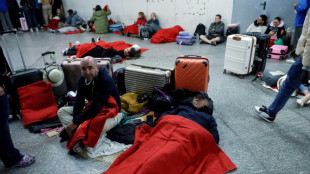
-
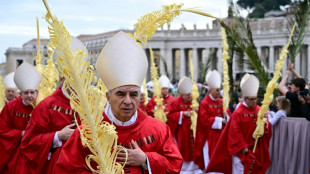 Convicted cardinal confirms he will sit out conclave
Convicted cardinal confirms he will sit out conclave
-
Kashmiris fortify bunkers anticipating India-Pakistan crossfire
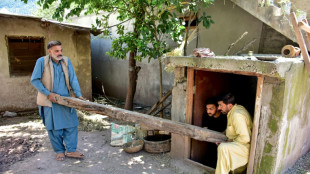
-
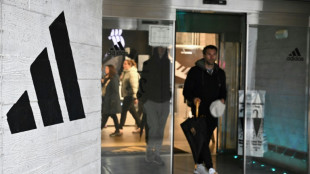 Adidas warns US tariffs to push up prices
Adidas warns US tariffs to push up prices
-
Markets boosted as Trump softens tariff pain for auto firms

-
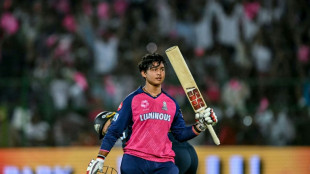 Suryavanshi, 14, dubbed 'next superstar' after batting records tumble
Suryavanshi, 14, dubbed 'next superstar' after batting records tumble
-
Australian doubles player Purcell accepts 18-month doping ban

-
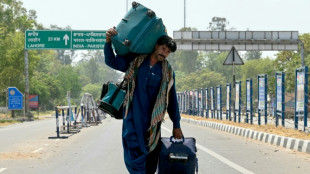 Kashmir attack unites political foes in India, Pakistan
Kashmir attack unites political foes in India, Pakistan
-
Croatia hotel toasts dizzying century of stars, sovereigns and champagne
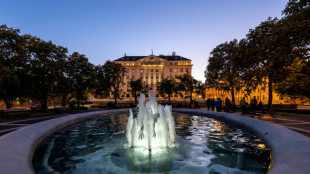
-
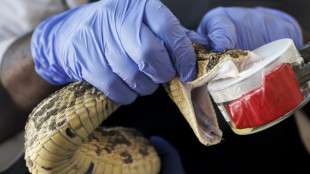 Kenya's desperate need for more snake antivenom
Kenya's desperate need for more snake antivenom
-
Les Kiss in frame with Wallabies set to name new coach
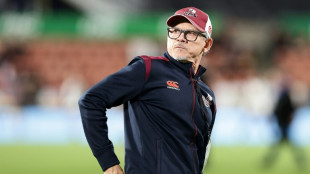
-
 Cavaliers scorch Heat, Warriors down Rockets in thriller
Cavaliers scorch Heat, Warriors down Rockets in thriller
-
Opposition wins Trinidad and Tobago election, returning Persad-Bissessar as PM
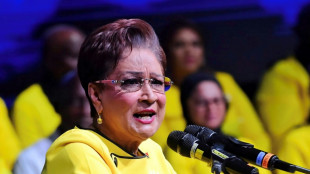
-
 Study sheds light on origin of Australia's odd echidna
Study sheds light on origin of Australia's odd echidna
-
France tries Syrian Islamist rebel ex-spokesman on war crime charges
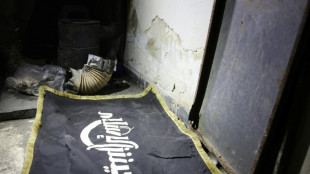
-
 Trump boasts of 'fun' 100 days, but Americans disenchanted
Trump boasts of 'fun' 100 days, but Americans disenchanted
-
Elitist no more, caviar is turning casual
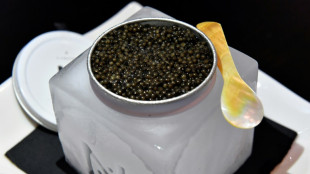
-
 Amnesty accuses Israel of 'live-streamed genocide' against Gaza Palestinians
Amnesty accuses Israel of 'live-streamed genocide' against Gaza Palestinians
-
Inter slump puts season at risk ahead of daunting Barca trip

-
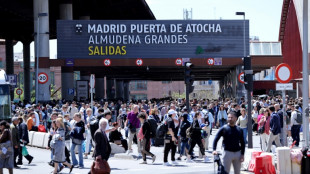 Power returns to most of Spain, Portugal after massive blackout
Power returns to most of Spain, Portugal after massive blackout
-
'I have hope': Vietnam Babylift survivor's search for birth mother

-
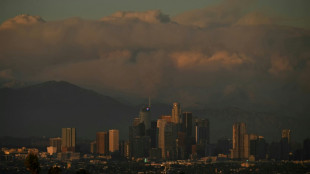 US climate assessment thrown into doubt as Trump dismisses authors
US climate assessment thrown into doubt as Trump dismisses authors
-
Venezuelan president slams US over little girl's 'abduction'
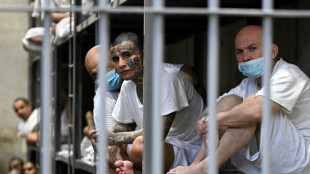
-
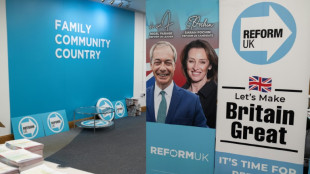 Hard-right upstarts eye big gains in local UK polls
Hard-right upstarts eye big gains in local UK polls
-
Skulls, smoke and spirits: Thai ceremony for the unclaimed dead
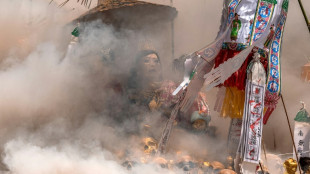
-
 Canada's Carney: political newcomer who says he's best in a crisis
Canada's Carney: political newcomer who says he's best in a crisis
-
Cavaliers scorch Heat to seal series sweep

-
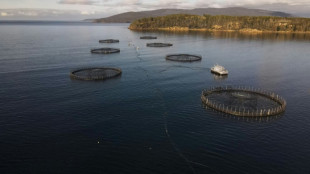 Dead salmon create election stink on Australian island
Dead salmon create election stink on Australian island
-
Mic check: Singapore's podcast boom amplifies opposition voices

-
 Markets rise as traders gear up for earnings, key jobs data
Markets rise as traders gear up for earnings, key jobs data
-
Congress passes 'revenge porn' ban, sending it to Trump
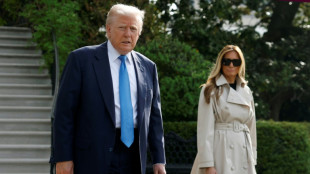
-
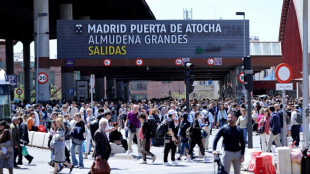 Spain and Portugal work to restore power after massive blackout
Spain and Portugal work to restore power after massive blackout
-
Less-thirsty rice offers hope in drought-stricken Chile

-
 Yamal stardust could give Barca edge on Inter Milan
Yamal stardust could give Barca edge on Inter Milan
-
Granite Creek Sells Hydrogen Projects

-
 SMC Entertainment Launches Plato's Web3 Browser, Enabling Secure Access to Multiple Decentralized Applications
SMC Entertainment Launches Plato's Web3 Browser, Enabling Secure Access to Multiple Decentralized Applications
-
Orogen Royalties Announces Record Year End Financial Performance

-
 NioCorp Engages Engineering Firms to Update Elk Creek Project Feasibility Study
NioCorp Engages Engineering Firms to Update Elk Creek Project Feasibility Study
-
Global Sports Brand U.S. Polo Assn. Delivers Record $2.5 Billion in Retail Sales for 2024, Targets $3 Billion and 1,500 U.S. Polo Assn. Stores


N.Ireland marks 50 years since 'Bloody Sunday' with sombre memorial
The Northern Irish city of Londonderry began commemorations Sunday of one of the darkest days in modern UK history when, 50 years ago, British troops without provocation killed 13 unarmed civil rights protesters.
The anniversary of "Bloody Sunday" comes with Northern Ireland's fragile peace destabilised by Brexit, and with families of the victims despondent over whether the soldiers involved will ever face trial.
The 13 demonstrators died on January 30, 1972, when members of the British Parachute Regiment fired more than 100 high-velocity rounds into crowds in Londonderry, known as Derry to pro-Irish nationalists.
Some of the victims were shot in the back, or while on the ground, or while waving white handkerchiefs as the shots ripped through narrow streets and across open wasteland in the Catholic Bogside district.
On Sunday, several hundred people including relatives of the victims retraced the fateful 1972 march that preceded the tragedy, walking in sombre silence under a leaden grey sky.
Children joined the poignant procession, bearing portraits of those killed and 14 white roses -- a 14th protestor shot on "Bloody Sunday" died months later, but subsequent inquiries determined it was not due to his injuries.
At a later annual remembrance event, held in front of a plinth memorial erected in the Bogside in 1974, a short period of silence was held after the names of those killed were read aloud and a wreath laid for each as a flute played mournfully.
"We have travelled a long road from the horror of that day," Michael McKinney, whose brother William was among the 13 killed, told the hundreds gathered.
McKinney, who has spearheaded relatives' decades-long quest for justice, reiterated their demands for "the prosecution of the uniformed criminals who murdered our people on our streets".
Ireland's Prime Minister Micheal Martin became the first Irish leader to attend the yearly memorial, alongside foreign minister Simon Coveney, with both laying wreathes.
- Amnesty? -
British Prime Minister Boris Johnson this week called "Bloody Sunday" a "tragic day in our history".
But his government is pushing legislation that critics say amounts to an amnesty for all killings during Northern Ireland's three decades of sectarian unrest, including by security forces.
After an initial government report largely exonerated the paratroopers and authorities, a landmark 12-year inquiry running to 5,000 pages found in 2010 that the victims were unarmed and posed no threat, and that the soldiers' commander on the ground violated his orders.
"The shootings were unjustified and unjustifiable," its chairman Mark Saville, a former judge and UK lawmaker, told BBC radio Saturday.
He expressed concern that with the surviving soldiers now elderly, the government should have launched any prosecution "a very long time ago".
Charlie Nash, now 73, saw his 19-year-old cousin William Nash killed on "Bloody Sunday".
"It's important for the rest of the world to see what they done to us that day. But will we ever see justice? Never, especially not from Boris Johnson," he told AFP ahead of Sunday's memorial events.
- 'Reckless' -
Then as now, Londonderry was a largely Catholic city. But housing, jobs and education were segregated in favour of the pro-British Protestant minority.
Simmering tensions over the inequality made it the cradle of the "Troubles" in Northern Ireland starting in the late 1960s, which finally ended with the 1998 Good Friday Agreement.
However, more than two decades on, the UK's fractious divorce from the European Union has unsettled the fragile post-1998 consensus.
Protestant unionists want Johnson's government to scrap a protocol governing post-Brexit trade for Northern Ireland, which treats the province differently from the UK mainland (comprising England, Scotland and Wales).
The government, which is in protracted talks with the EU on the issue, is sympathetic to their demands.
Heading into regional elections in May, some nationalists hope Brexit could help achieve what the Irish Republican Army (IRA) never did -- a united Ireland, a century after the UK carved out a Protestant statelet in the north.
Sinn Fein, which was once the political wing of the IRA, is running ahead of the once dominant unionists in opinion polls.
Protestant hardliners have issued their own reminders of where they stand: leading up to the anniversary, Parachute Regiment flags have been flying in one unionist stronghold of Londonderry, to the revulsion of nationalists.
"How can they do that, this weekend of all weekends?" asked George Ryan, 61, a tour guide and local historian.
At the entrance to the Bogside, a wall normally proclaims in large writing: "You are now entering Free Derry." This weekend the mural read: "There is no British justice."
Ch.Kahalev--AMWN


